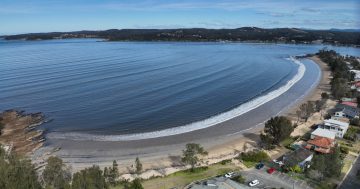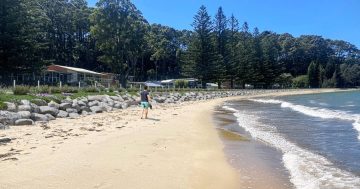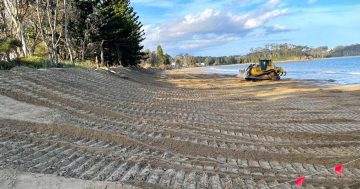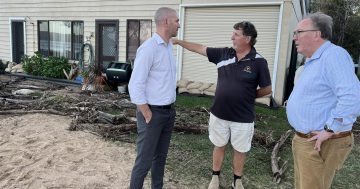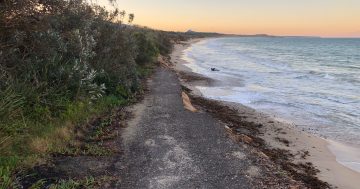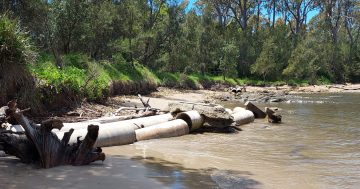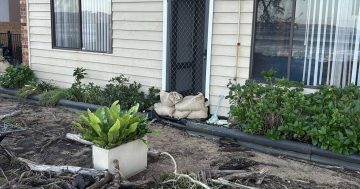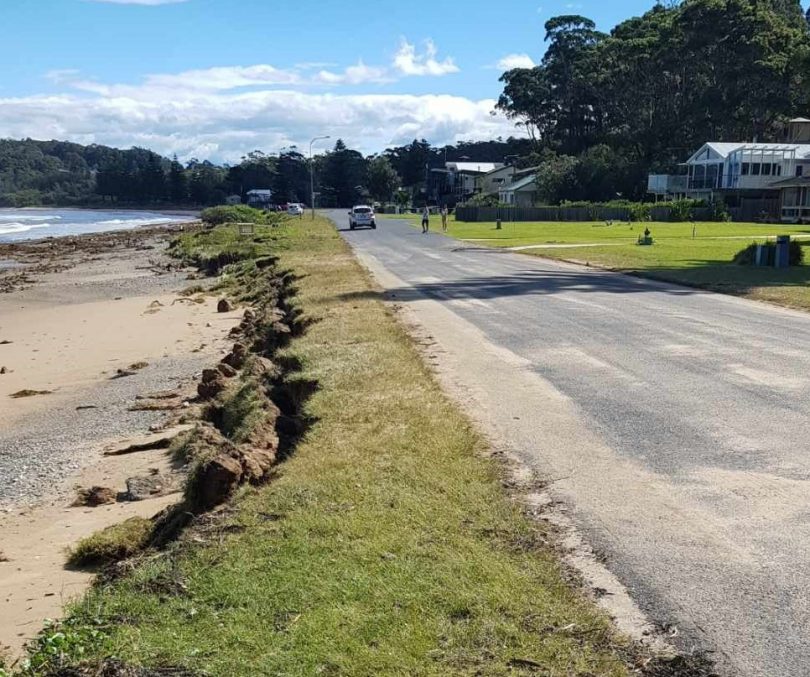
Council is investigating options to protect Bay Road at Long Beach after the dunes receded within one metre of the road during the weekend’s big swell. Photo: ESC.
The battering the Eurobodalla’s coastline took in recent big seas shows the shire’s coastal planning program is on the right track, according to Eurobodalla Shire Council.
A swell of up to 7 m lashed the coast last weekend, overtopping car parks and roads and pounding beachside dunes.
“Thankfully there was no major damage to council-managed infrastructure,” a council spokesperson said, “however Long Beach, Surfside, Tomakin Cove and South Broulee beaches experienced significant erosion.
“Council is investigating options to protect Bay Road at Long Beach after the dunes receded within 1 m of the road.”
The Moruya Breakwall, managed by Transport for NSW, was also damaged and is expected to be closed until repairs can be made in May.
Council’s coastal and flood planner Cameron Whiting said there were no “big surprises” regarding impacts from the weekend’s one-in-20-year event. He said it reflected modelling outlined so far in the council’s Open Coast Coastal Management Program (CMP), which looks to identify areas at risk of coastal hazards and appropriate measures to protect them.
“The storm reinforced our understanding of the areas that are vulnerable, how they will behave under certain conditions and that our coastal hazard assessment mapping has been on the right track,” he said.
Mr Whiting said, as part of the CMP process, council would present a range of mitigation options for the community to consider in the coming months, including for the high priority areas.
“We’re modelling a range of ‘soft and hard’ solutions for high priority areas, which include Surfside, Wharf Road, Long Beach and Caseys Beach,” he said. “These range from rock walls, groynes and levies to beach nourishment and revegetation.
“Significant works such as these need to be considered thoroughly – they require detailed design, costing and agreement from the community, government agencies and council – and of course then they need to be funded.”
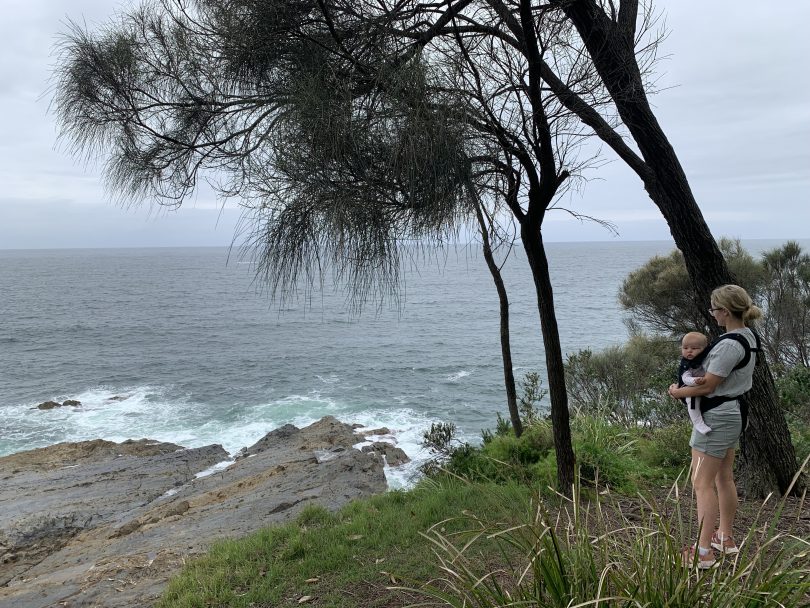
Council is warning people to take extra care in unstable coastal areas. Photo: Kim Treasure.
In the meantime, council will continue its work with Landcare on dune restoration to ensure native vegetation is in place to strengthen the coastal environment, where possible.
Council’s natural resource management coordinator Heidi Thomson urged the community to stay well away from unstable dune areas.
“Children especially should never dig holes or tunnels into the dunes; some of the areas have been severely undercut and could potentially collapse,” she said.
“We’re seeing a lot of debris washed up on our beaches, too – anyone who finds litter and rubbish, particularly plastic, can help out by collecting it for disposal. You can help even further by recording your finds on the Australian Marine Debris Database to help us see what the problem items are.”
More information on council’s Open Coast Coastal Management Program is available here.







